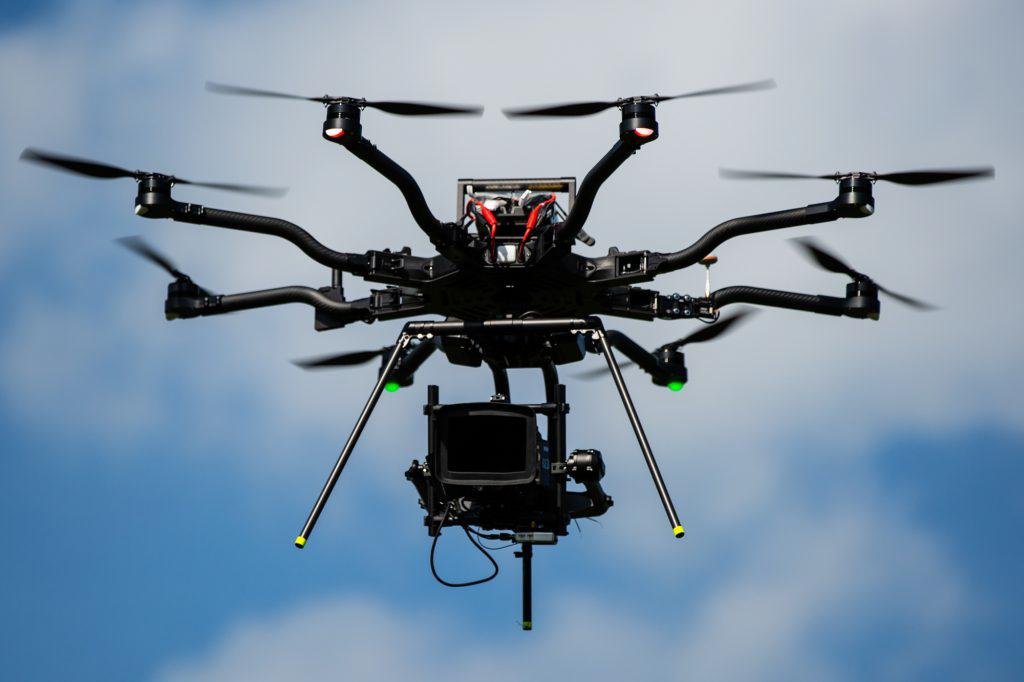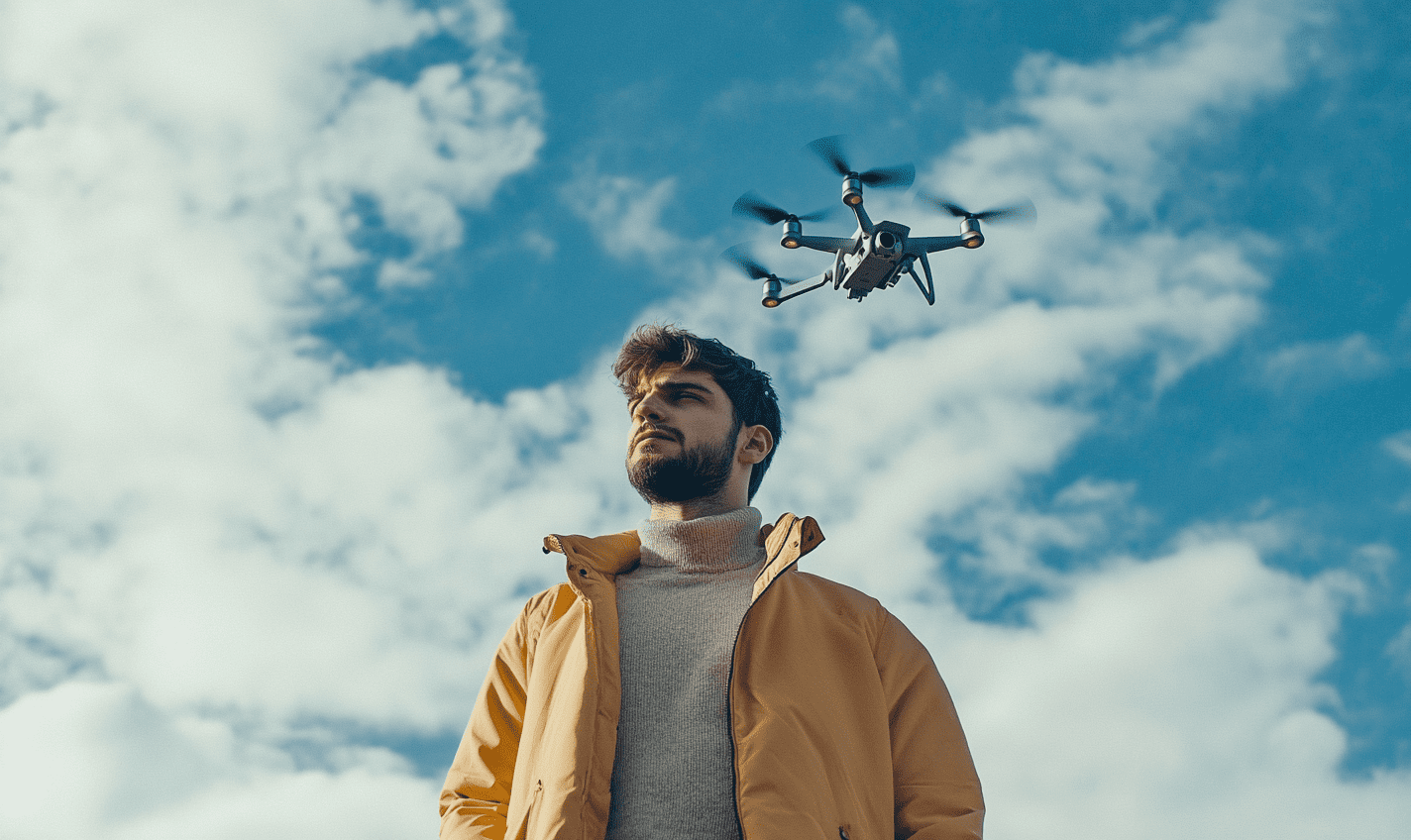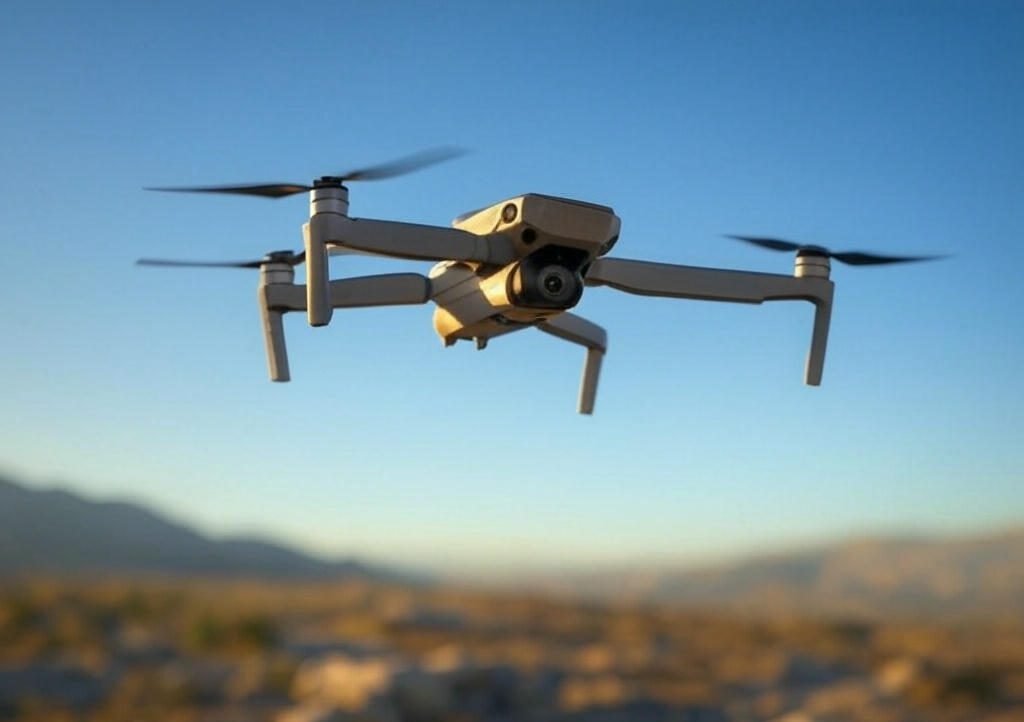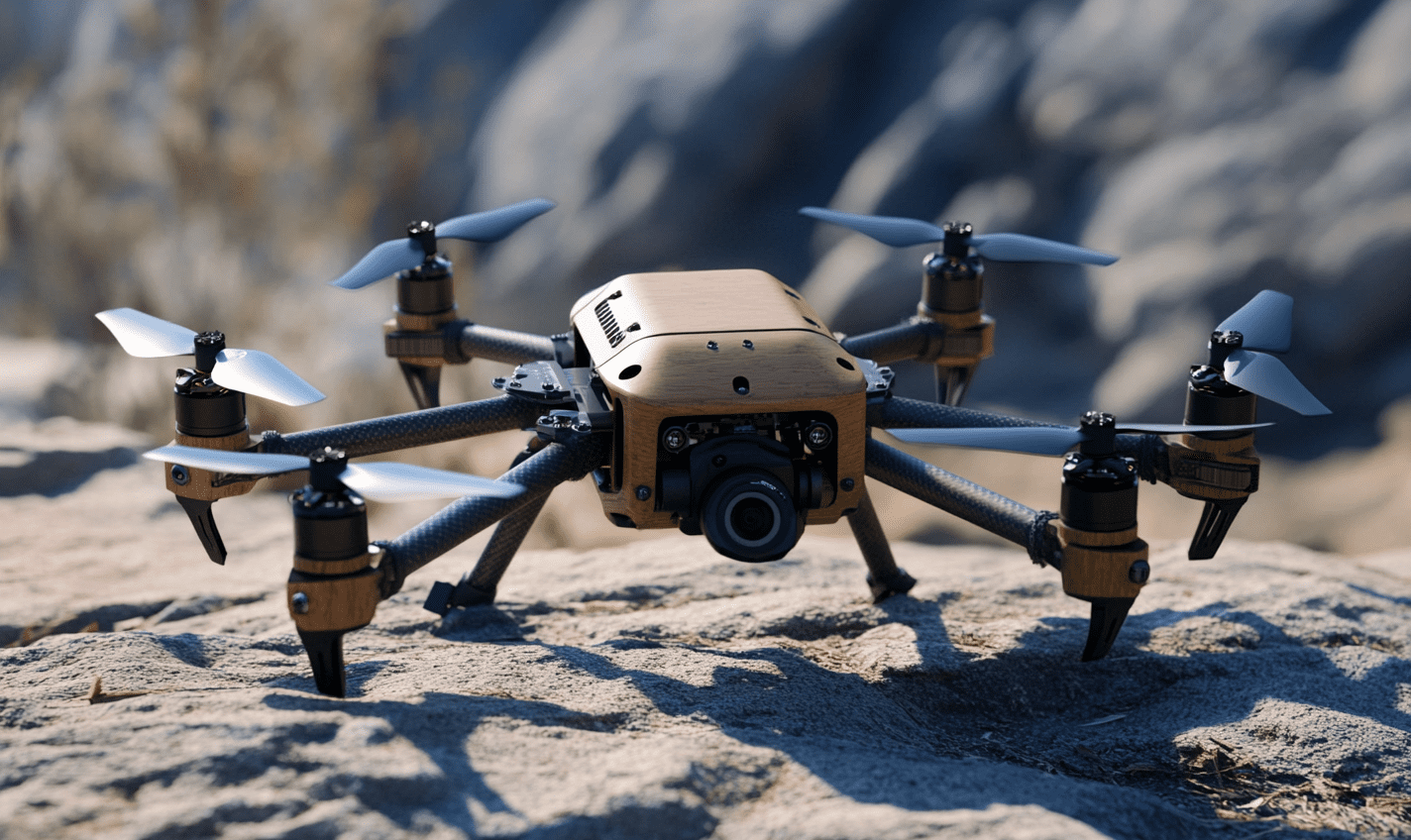Drones have revolutionized various industries—from real estate and agriculture to filmmaking and public safety. As the demand for drone pilots grows, obtaining your FAA Part 107 Certification has never been more valuable. Whether you’re looking to start a new career or expand your skill set, this comprehensive guide will walk you through everything you need to know about becoming a certified commercial drone pilot.
Drone Universities is here to support you every step of the way. Our expert-led training programs are designed to help you pass the FAA Part 107 exam with confidence.
2. What is FAA Part 107 Certification?
FAA Part 107 Certification, also known as a Remote Pilot Certificate, is a license issued by the Federal Aviation Administration (FAA) that allows you to operate drones commercially in the United States. This certification ensures that drone pilots understand the rules and regulations governing unmanned aircraft systems (UAS) and can operate safely within the National Airspace System.
3. Why Get a Drone Pilot License?
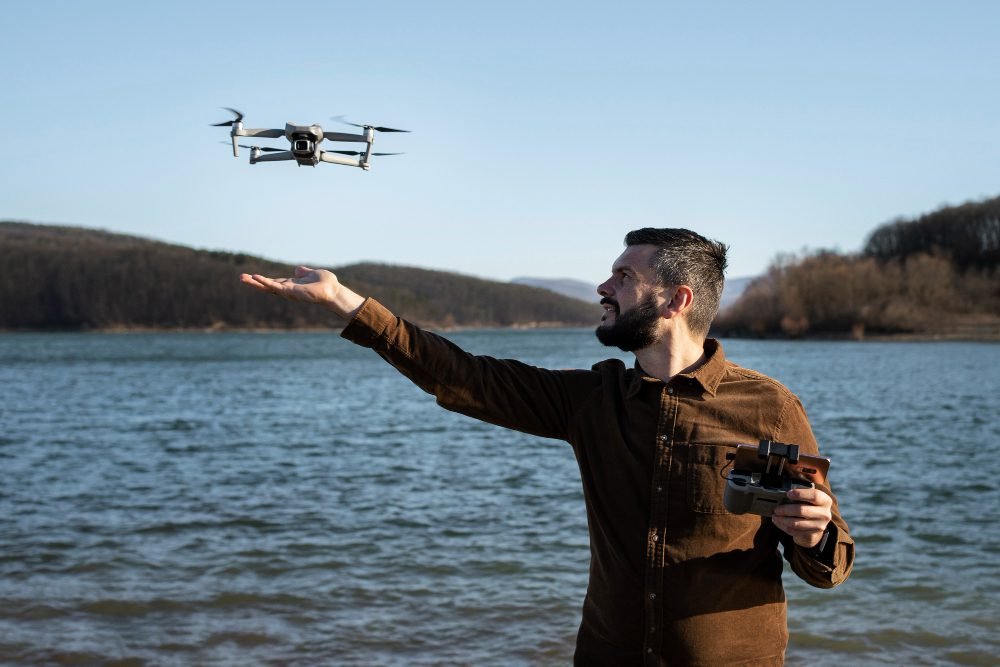
Unlock Commercial Opportunities
With a Part 107 license, you can legally offer drone services for various commercial purposes, including:
- Aerial photography and videography
- Real estate marketing
- Agricultural monitoring
- Construction site surveys
- Inspection services
Stay Compliant
Operating without the proper certification can result in hefty fines and legal issues. The Part 107 license ensures you’re compliant with FAA regulations.
Enhance Your Skills
The certification process educates you on airspace rules, weather patterns, emergency procedures, and more—making you a safer and more proficient pilot.
4. Recreational vs. Commercial Drone Use
Recreational Use
- No License Required: Flying for fun doesn’t require a Part 107 license.
- TRUST Certificate: You must pass The Recreational UAS Safety Test (TRUST) and carry the certificate when flying.
- FAA Registration: Drones weighing more than 0.55 lbs (250 grams) must be registered.
- Flight Restrictions: Must follow community-based guidelines and fly within visual line-of-sight.
Commercial Use
- Part 107 License Required: Mandatory for any commercial operations.
- FAA Registration: All drones used commercially must be registered.
- Operational Limitations: Must adhere to specific FAA rules unless a waiver is obtained.
5. Requirements for FAA Part 107 Certification
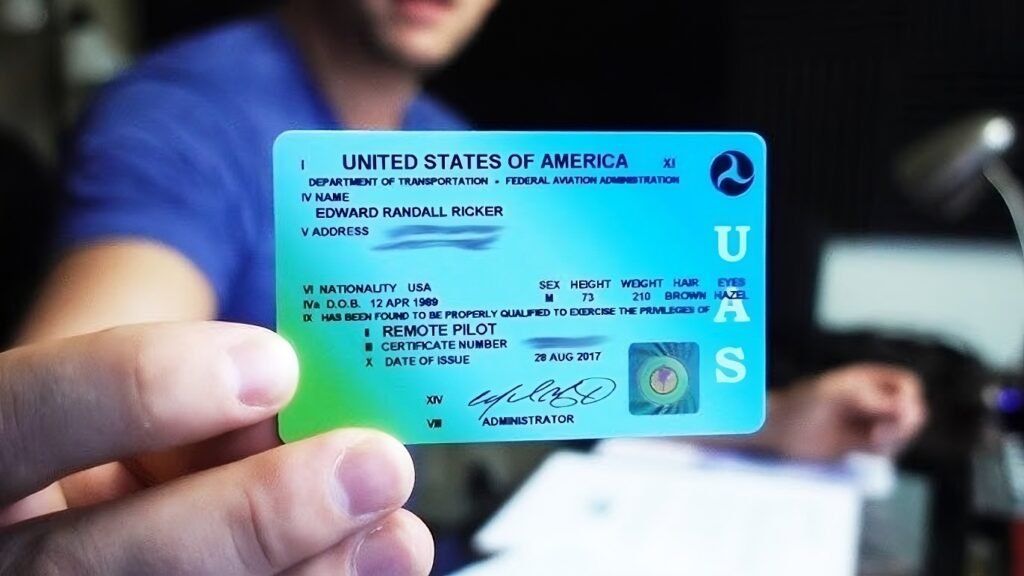
To be eligible for the Part 107 license, you must:
- Be at least 16 years old.
- Be able to read, write, speak, and understand English.
- Be in physical and mental condition to safely operate a drone.
- Pass the FAA Aeronautical Knowledge Test.
6. Steps to Obtaining Your Part 107 License
Step 1: Study for the Aeronautical Knowledge Test
- Enroll in a reputable training program like Drone Universities to prepare.
Step 2: Obtain an FAA Tracking Number (FTN)
- Create an account on the Integrated Airman Certification and Rating Application (IACRA) website to get your FTN.
Step 3: Schedule Your Test
- Register with an FAA-approved Knowledge Testing Center. The test fee is $175.
Step 4: Pass the Test
- Score at least 70% to pass the 60-question multiple-choice exam.
Step 5: Complete FAA Form 8710-13
- Apply for your certificate through the IACRA website using your test results.
Step 6: Receive Your Temporary Certificate
- After TSA security vetting, you’ll receive a temporary certificate within 10 business days.
Step 7: Get Your Permanent Certificate
- The FAA will mail your permanent Remote Pilot Certificate within 6-8 weeks.
7. Preparing for the Aeronautical Knowledge Test
The test covers various topics, including:
- Regulations: Understanding FAA Part 107 rules.
- Airspace Classification: Types of airspace and operating requirements.
- Weather Effects: How weather impacts drone performance.
- Loading and Performance: Drone weight and balance calculations.
- Emergency Procedures: How to handle unexpected situations.
- Crew Resource Management: Effective team communication and decision-making.
- Radio Communication Procedures: Proper communication protocols.
Drone Universities offers comprehensive courses that cover all these topics in-depth, ensuring you’re well-prepared.
8. How Drone Universities Can Help You Succeed

At Drone Universities, we are committed to providing personalized training that fits your unique needs. Here’s how we can help you achieve your goals:
Personalized Live Training Nationwide
- We Come to You: Our FAA-certified instructors will travel to your location anywhere in the United States. Whether you’re in a bustling city or a rural area, we’re dedicated to making professional drone training accessible to you.
- Tailored Instruction: Receive one-on-one training customized to your skill level and objectives. We adapt our curriculum to suit beginners and advanced pilots alike.
10. Career Opportunities with a Part 107 License
Industries Hiring Drone Pilots
- Real Estate: Create compelling property visuals.
- Construction: Site mapping and progress tracking.
- Agriculture: Crop monitoring and soil analysis.
- Film and Media: Capture cinematic aerial shots.
- Public Safety: Search and rescue operations.
- Infrastructure Inspection: Inspect bridges, towers, and pipelines.
Potential Earnings
- Freelance Work: Typical rates range from $200-$500 per project.
- Full-Time Positions: Salaries can range from $50,000 to $100,000+ annually, depending on experience and industry.
11. Frequently Asked Questions (FAQs)
Q1: Do I need to know how to fly a drone before getting certified?
No, the FAA does not require a practical flight test. However, practical experience is beneficial, and Drone Universities offers hands-on flight training.
Q2: How hard is the Aeronautical Knowledge Test?
With proper preparation, most people find the test manageable. Our training program boasts a high pass rate due to thorough curriculum coverage.
Q3: How often do I need to renew my certification?
You must pass a recurrent knowledge test every 24 months to keep your certification active.
Q4: Can Drone Universities help me find a job after certification?
Yes, we offer career services, including job placement assistance and networking opportunities.
Q5: Is drone insurance required?
While not mandated by the FAA, insurance is highly recommended for commercial operations. It protects you and your clients in case of accidents or damage.
12. Conclusion
Obtaining your FAA Part 107 Certification opens the door to exciting commercial drone opportunities. It’s an investment in your future, offering a chance to turn a hobby into a lucrative career. With the proper guidance and training from Drone Universities, you can navigate the certification process smoothly and start flying with confidence.
Ready to Take the Next Step?
Enroll in Drone Universities’ FAA Part 107 Training Program today and soar towards a successful career as a certified drone pilot.
Contact Us
- Website: www.droneuniversities.com
- Email: info@droneuniversities.com
- Phone: 1.866.643.8709
Fly safe. Fly smart. Fly with Drone Universities.


